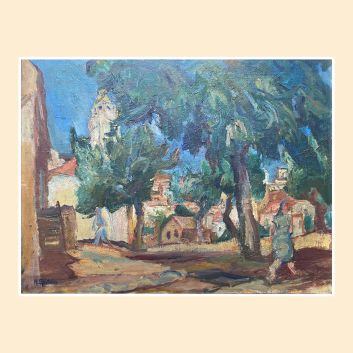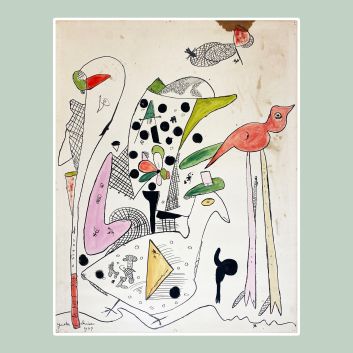The value and quotation of Jean Couty's paintings
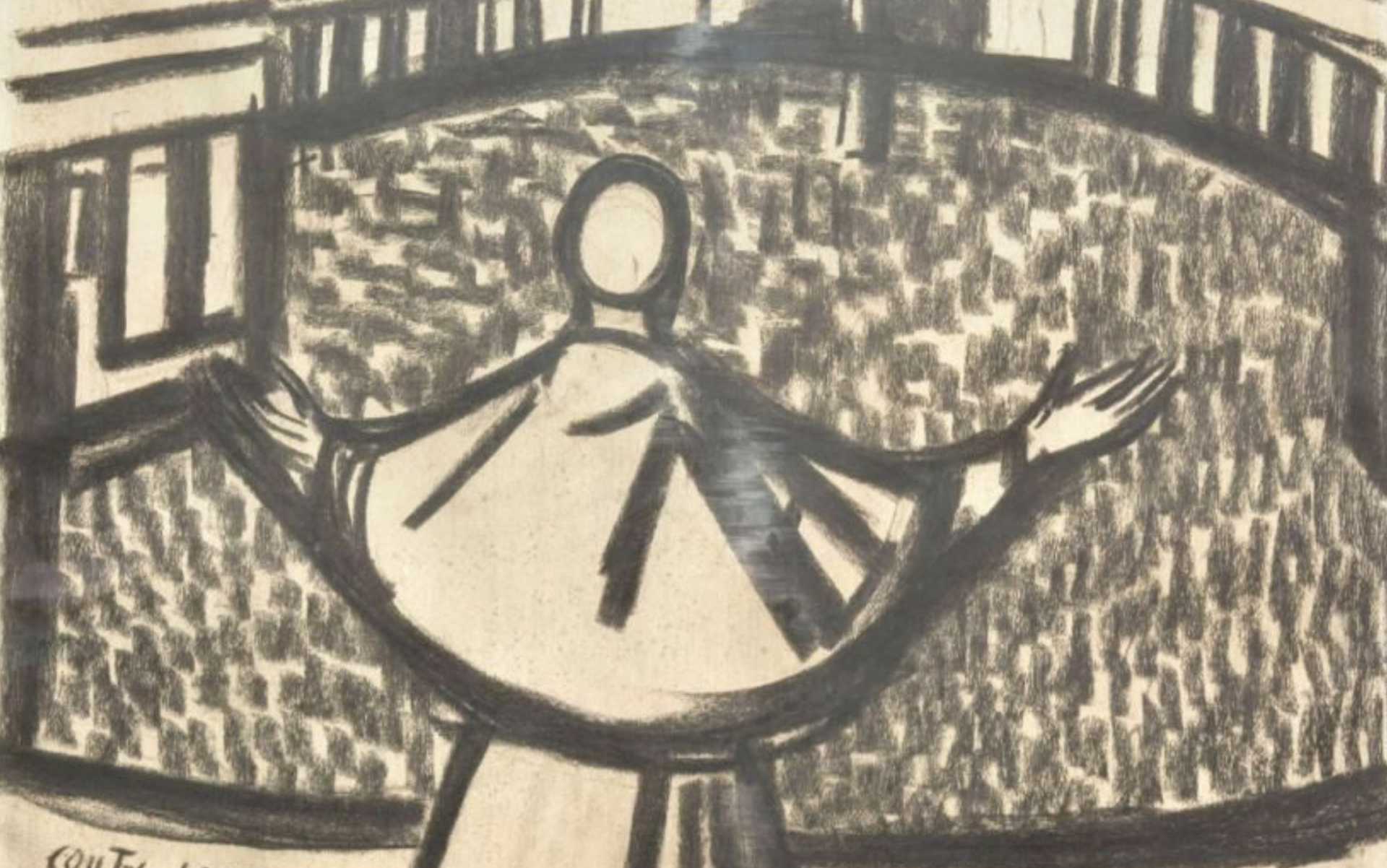
If you own a work of art by or after Jean Couty, and would like to know its value, our state-approved experts and auctioneers will offer you their appraisal services. Our specialists will carry out a free appraisal of your work, and provide you with a precise estimate of its current market value. Then, if you wish to sell your work, we'll guide you towards the best possible arrangement to obtain the optimum price.
Artist's rating and value Jean Couty
The artist Jean Couty has left behind him a very singular body of work, in the Contemporary Art style, with no particular movement really attached to it, but rather influenced by several. He studied art in Lyon and exhibited all over Europe. Prices for his works are now rising under the auctioneer's hammer. His paintings are particularly prized, especially by French buyers. The price at which they sell on the art market ranges from €20 to €25,000, a significant gap but one that speaks volumes about the value that can be attributed to Jean Couty's works. In 2022, an oil on canvas influenced by Courbet sold for €9,000, whereas its estimate was between €4,000 and €6,000.
Order of value from a simple work to the most prestigious
Technical | Estimate |
Color lithography | 20 - 400€ |
Other (charcoal, ink, paper) | 25 - 3 200€ |
Oil on canvas | 37 - 25 000€ |
Response in less than 24h
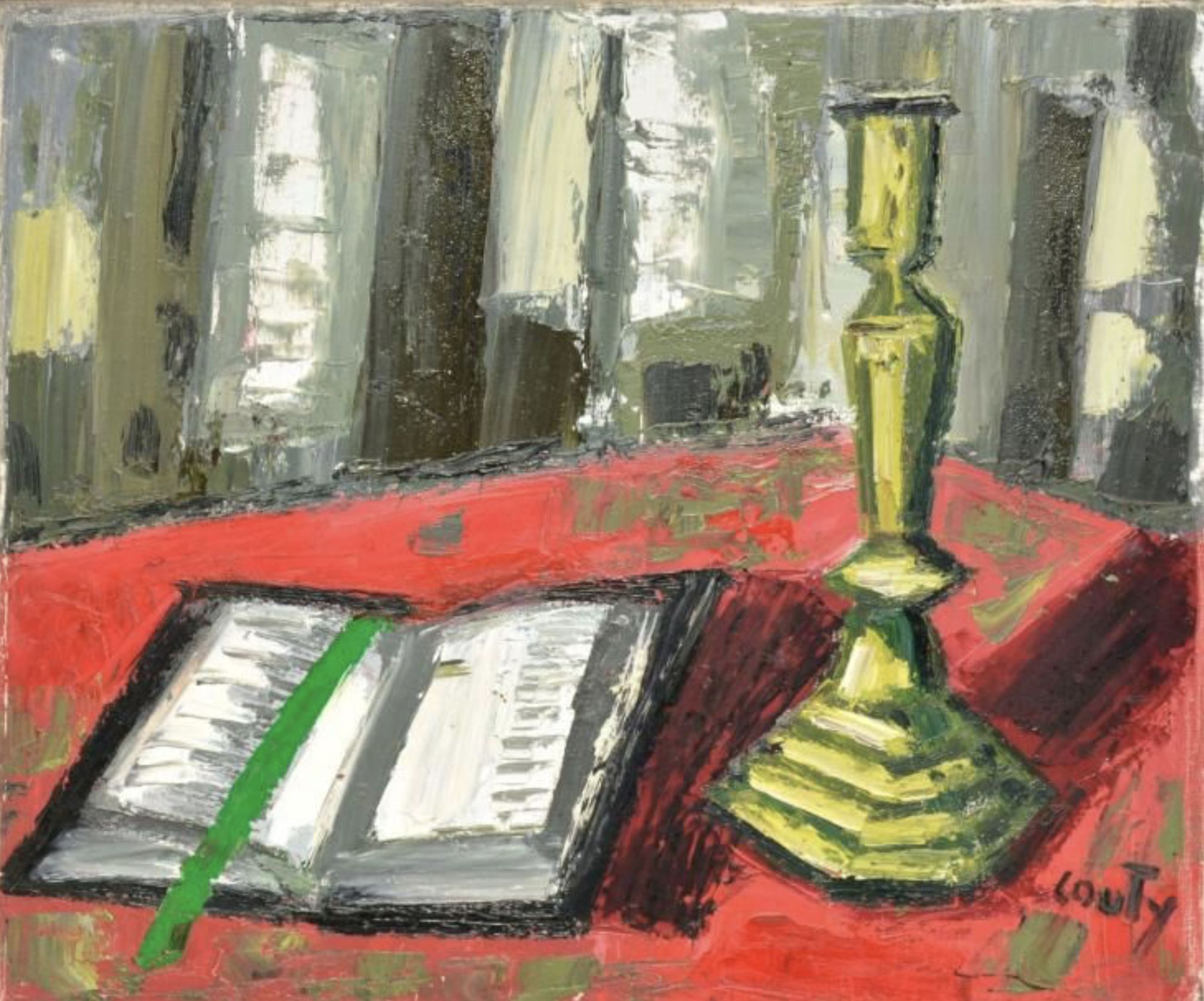
Jean Couty's style and technique
Jean Couty succeeded in blending several currents and influences, so it's impossible to pin him down to one particular movement. He admired Courbet's work and used it in his treatment of light. He also had various influences, such as Cézanne cubism.
The life of Jean Couty
Jean Couty (1907-1991), an artist from Lyon, became an important figure in the contemporary art of the 20th century. Born in Lyon, nothing predestined him for painting. Born into a modest family, he produced his first drawings in 1918 and met Tony Garnier when he was just 15. On his recommendation, he attended the Ecole des Beaux-Arts in Lyon. At the time, he didn't yet know what kind of art he was going to pursue. He took courses in architecture and won first prize in archaeology. It was Tony Garnier, with whom he would later work, who steered him towards painting. He began by painting buildings, notably churches, then moved on to more general landscape painting in his compositions.
In 1935, he joined Les Nouveaux, a group of contemporary artists. Like many of his contemporaries, he frequented the Salons, notably the Salon d'Automne. He quickly built up a network of friends, including writers, painters and art critics. Some of these friends allowed him to exhibit his work all over Europe, but he remained in Lyon for most of his life, even though he traveled extensively. The French government bought several of his paintings, some of which are exhibited in national museums. His life was marked by the two world wars, and he produced drawings about the deportation and tried his hand at still lifes. He was awarded several distinctions by the French government during the latter part of his career.
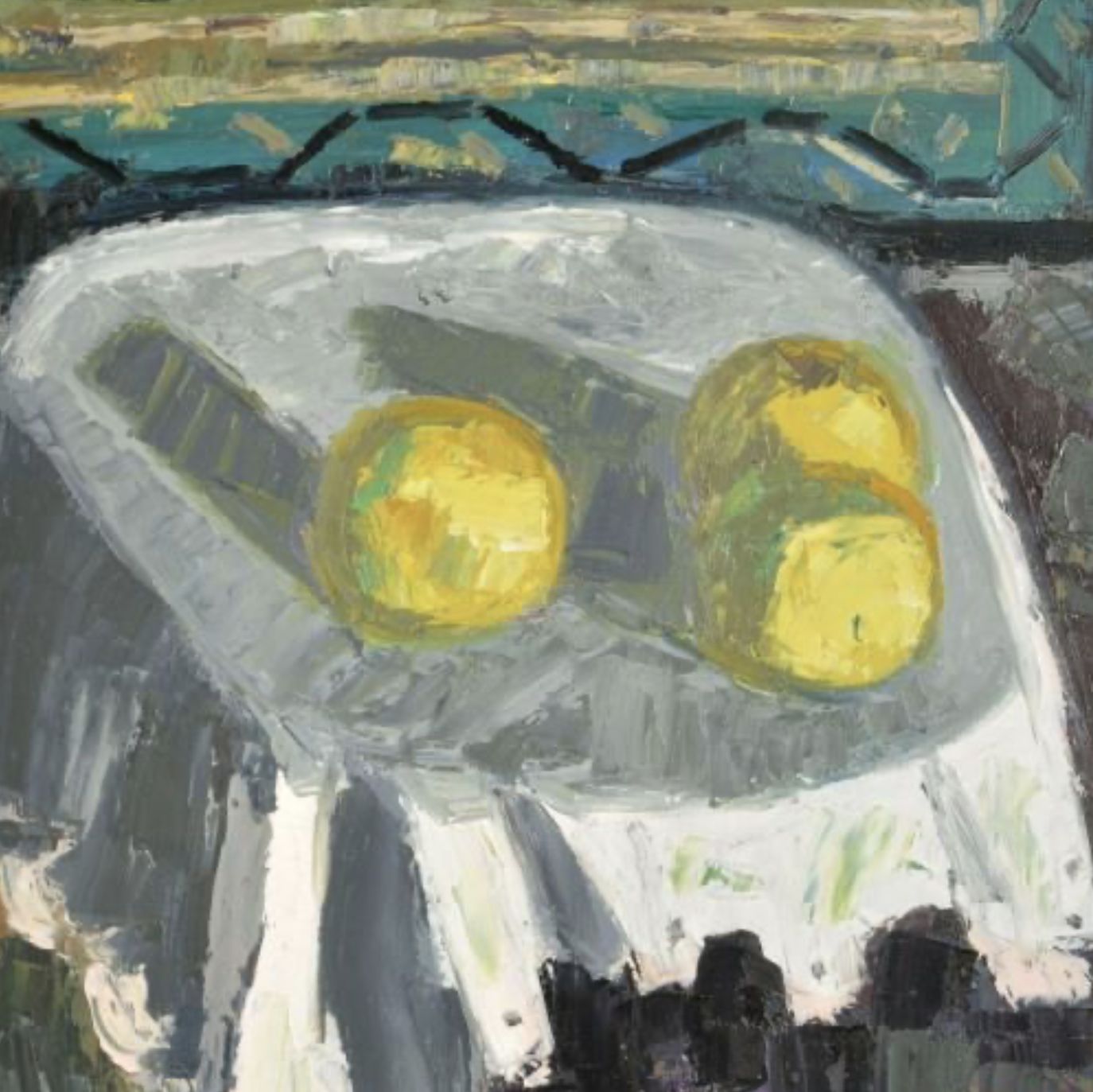
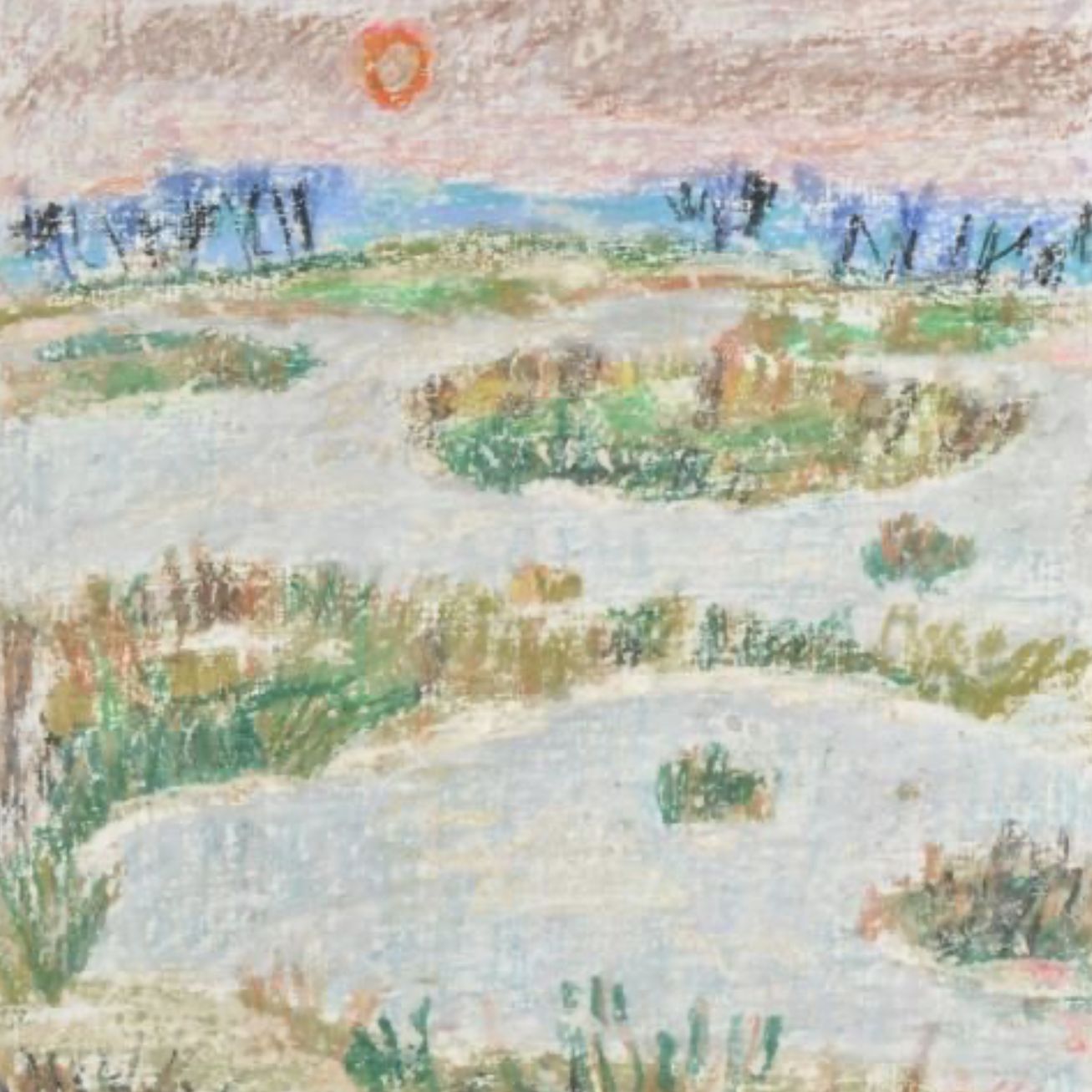
Response in less than 24h
Jean Couty's imprint on his period
Thanks to his participation in several Salons and his many friendships in the art world, Jean Couty developed a style all his own. Throughout his career, he remained a great admirer of Gustave Courbet, and used his technical process for the treatment of light. However, he was highly versatile, mastering a wide range of techniques and subjects. He befriended Jean Giono, the great author of war literature. He created an illustration for one of his books, and the canvas was also bought by the French state. He exhibited in many French cities, as well as in Germany, Italy and other European countries. His influence was thus international, and he was appreciated by the general public. His canvases are marked by the techniques of contemporary art, but are easy for his public to understand because he did not go as far as abstraction.
Recognizing your signature
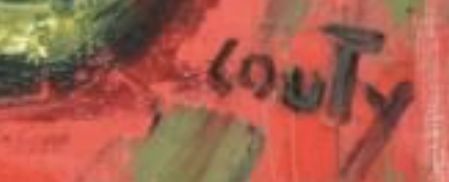
Jean Couty's works are usually signed in the bottom right-hand corner of the painting, in a color that contrasts with the background. He signs "Couty".
Knowing the value of a work
If you happen to own a work by or after Jean Couty, don't hesitate to request a free appraisal using the form on our website. A member of our team of experts and certified auctioneers will contact you promptly to provide you with an estimate of the market value of your work, as well as any relevant information about it. If you wish to sell your work of art, our specialists will also be on hand to offer you alternatives for selling it at the best possible price, taking into account market trends.
Response in less than 24h
Related topics
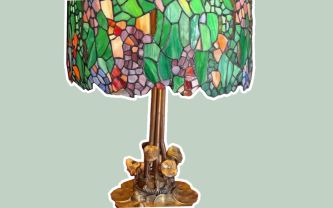
Rating and value of Tiffany lamps, objects and creations
Tiffany creations are esteemed for their excellence and exceptional craftsmanship, with high values. Find out more about their ratings.
Read more >
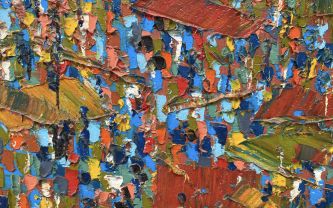
Rating and value of paintings by Ablade Glover
Ablade Glover, a twentieth- and twenty-first-century Ghanaian painter, has produced many successful oil-on-canvas paintings.
Read more >
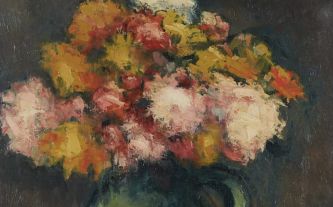
Rating and value of paintings by Maurice L...
Maurice Louvrier is an Impressionist painter of the Rouen School, who produced many highly valued paintings.
Read more >
Secure site, anonymity preserved
State-approved auctioneer and expert
Free, certified estimates
